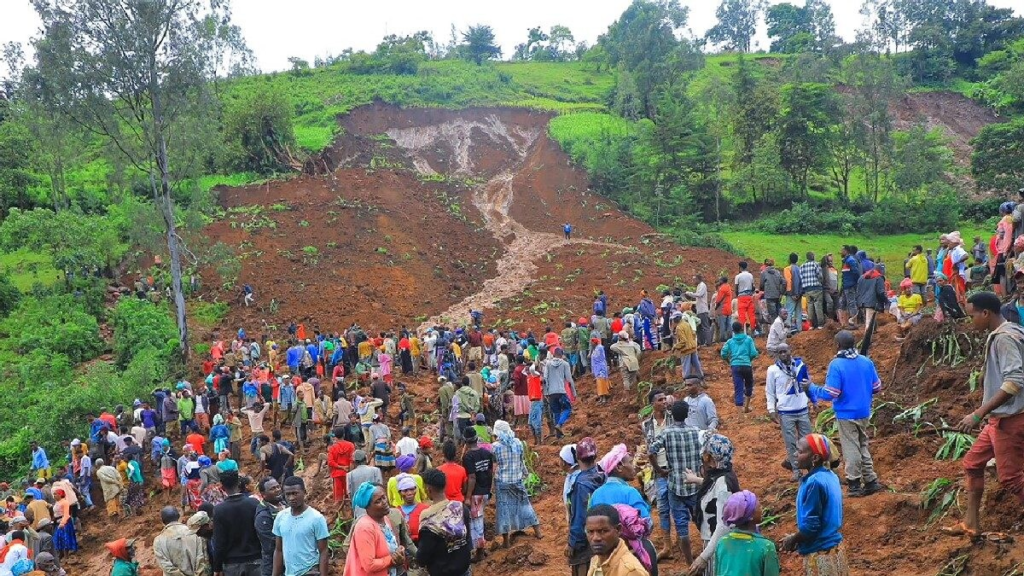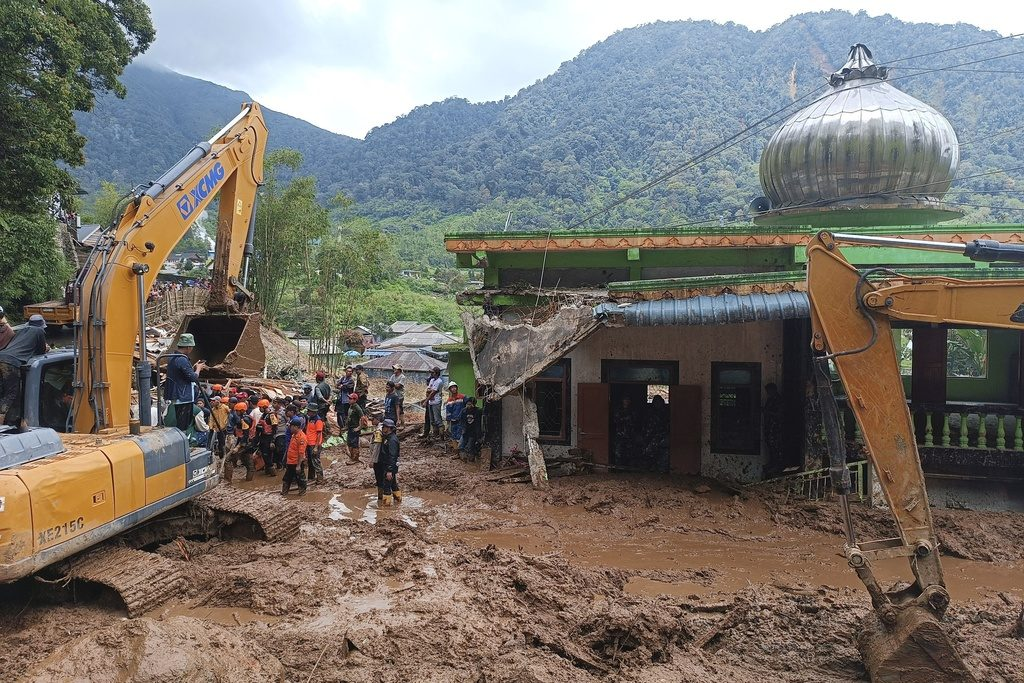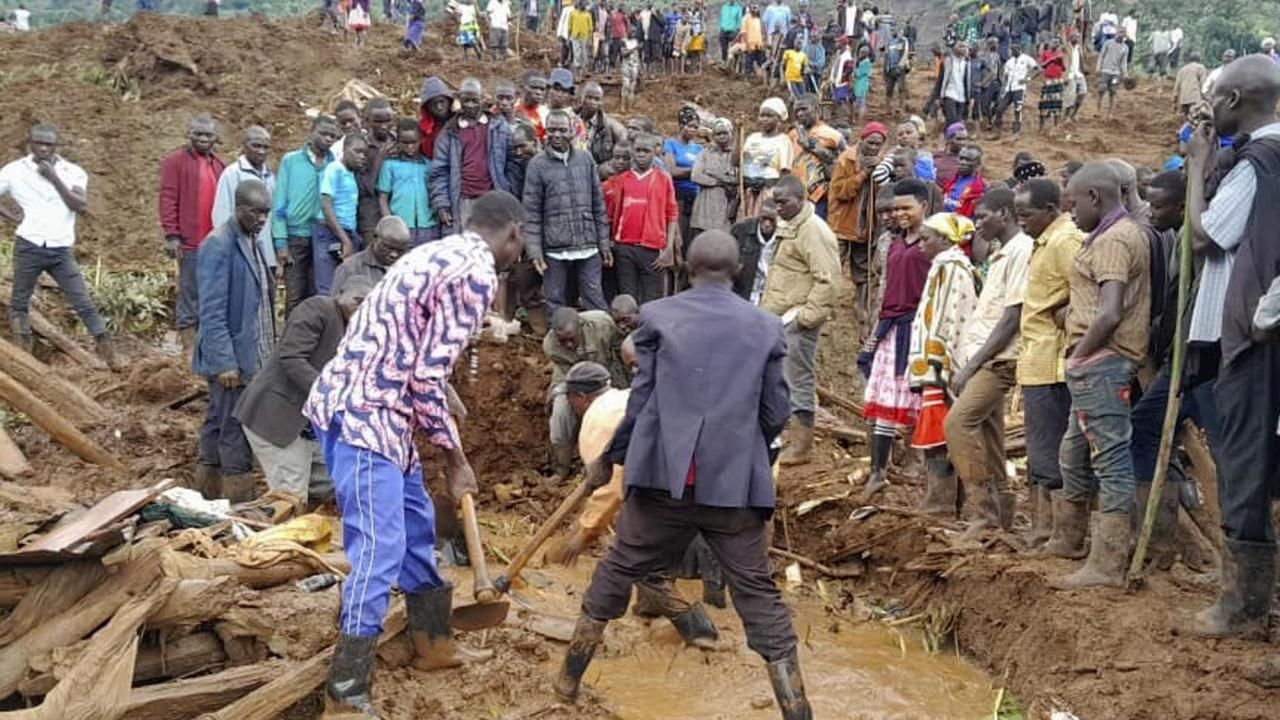The picturesque yet perilous terrain of eastern Uganda has once again faced nature’s wrath, as a devastating landslide claimed lives and left more than a hundred people missing. Triggered by relentless rainfall, this disaster has struck the Bulambuli district, about 280 kilometers from the capital, Kampala.
The tragedy underscores the harsh reality of climate vulnerabilities faced by communities nestled in mountainous regions. Despite ongoing rescue efforts, the scale of destruction and the human cost remain staggering, with homes swept away, lives lost, and entire villages submerged in grief.
Deadly Landslide in Uganda
The Landslide in Uganda, exacerbated by incessant heavy rains, swept through multiple villages, leaving at least 113 people missing and claiming 15 lives, including six children. The Ugandan Red Cross Society has been at the forefront, mobilizing resources and personnel for the rescue operation.
According to their reports, approximately 40 houses were completely destroyed, forcing families into an agonizing search for missing loved ones. The military has also been deployed to assist in search and recovery missions, highlighting the gravity of the situation.
Efforts have been hampered by the challenging terrain and continued rainfall, complicating access to the affected areas. The defence forces’ tragic loss of an engineer during a rescue attempt on a flooded bridge near Pakwach further illustrates the perilous conditions under which these operations are being conducted.
Read : 14 People Killed by Lightning Strike in Uganda
The deployment of boats and helicopters has brought some hope, but the sheer scale of the disaster and the relentless rain continue to challenge the response teams.
Catastrophic landslides hit eastern Uganda, claiming at least 15 lives with over 100 people still missing.
— British Pakistani Index (@PakistaniIndex) November 29, 2024
40 households engulfed by mud, emergency crews scramble to rescue survivors.
Bridges and roads destroyed. #UgandaLandslides #Uganda pic.twitter.com/7e0jG5PTq4
Prime Minister Robinah Nabbanja’s disaster warning and ongoing government efforts reflect an urgent recognition of the magnitude of the crisis. Yet, the deeply entrenched vulnerability of these communities, both geographically and socio-economically, raises critical questions about preparedness and long-term solutions.
Historical Context and Vulnerability
Eastern Uganda’s history is marred by recurrent landslides and floods, often with devastating consequences. The region’s mountainous topography and fertile, arable land make it highly susceptible to landslides, particularly during heavy rainfall. This area, including the Bulambuli and Bududa districts, has experienced similar tragedies in the past.
The 2010 landslide in Bududa remains a grim reminder, where approximately 300 people lost their lives in one of Uganda’s worst natural disasters. Despite these incidents, many residents remain reluctant to relocate due to their attachment to ancestral lands and the region’s agricultural potential.
This emotional and economic connection to the land underscores a broader issue: the balance between cultural heritage and safety. Relocation efforts have often faced resistance, and government initiatives to move people from high-risk areas have met with limited success.

The challenge lies in addressing the immediate risks while respecting the cultural and economic realities of the affected communities. This latest landslide is a tragic reminder that without comprehensive, community-centered disaster management plans, such events will continue to devastate the region.
The vulnerability of eastern Uganda is also a reflection of broader infrastructural challenges. Many villages lack proper drainage systems, and roads are often impassable during heavy rains, isolating communities and complicating rescue operations.
Schools, churches, and bridges have been washed away, cutting off vital lifelines. These infrastructural deficiencies exacerbate the impact of natural disasters and hinder recovery efforts.
Climate Change and Future Preparedness
The recent landslide in Uganda is part of a broader pattern of increasingly extreme weather events linked to climate change. The heavy rainfall that triggered the landslide is not an isolated incident but part of a larger trend of climate variability that has seen East Africa experiencing more frequent and intense rainstorms.
The impact of climate change on rainfall patterns has profound implications for the region, where agriculture and livelihoods are deeply intertwined with the environment.
The International Federation of Red Cross and Red Crescent Societies has reported that thousands of people have already been displaced this year due to flooding and landslides. As climate change accelerates, these events are likely to become more frequent and severe, posing an ongoing threat to vulnerable communities.
This calls for a multi-faceted approach to disaster preparedness and mitigation. Strengthening early warning systems, improving infrastructure, and promoting sustainable land use practices are critical components of a long-term strategy.

Community involvement is key to building resilience. Educating residents about the risks and involving them in planning and decision-making processes can foster a sense of ownership and cooperation.
Relocation programs must be approached with sensitivity, ensuring that displaced families have access to resources and support to rebuild their lives. The challenge is not just to respond to disasters but to prevent them through proactive measures and sustainable development.
The tragic landslide in eastern Uganda is a stark reminder of the vulnerability of communities living in mountainous regions prone to natural disasters. The loss of life and the scale of destruction highlight the urgent need for comprehensive disaster management strategies that address both the immediate and long-term challenges.
As climate change continues to exacerbate the frequency and intensity of such events, Uganda must prioritize resilience-building efforts that protect its most vulnerable citizens. Only through a concerted and community-centered approach can the country hope to mitigate the impact of future disasters and safeguard the lives and livelihoods of its people.

